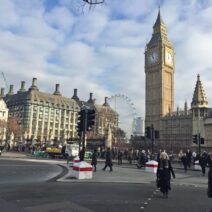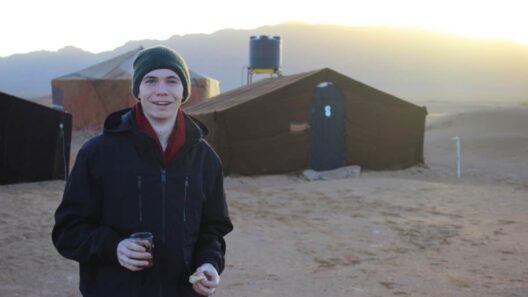So, you’ve recently moved overseas and settled into your new home. What are the next steps in setting up your new life overseas?
Following on from our guide to surviving the first few weeks of an overseas move, this article contains practical advice about what to do once you’ve found a place to live and are starting to establish yourself in your new place of residence.
Complete the formalities
The first step is to ensure you complete all the bureaucratic formalities involved with moving to a new country. This step is boring, but necessary.
Depending on which country you’ve moved to, you may need to register your new address with the local authorities. This is not only a legal requirement in some countries (e.g. Germany), but you’ll also receive a registration number or certificate which will then allow you to access important local services (such as opening a bank account).
Once you have a permanent address, you may be able to open a local bank account. This will make your life much easier if you’re planning to stay for any significant amount of time – although some banks may require you to have a job (or be studying) in that country before they will give you a bank account.
If you need to transfer money between your Australian bank account and your overseas account, you may wish to use Wise. They make this easy with low, transparent fees.
At this point, you should also check whether you need health insurance. Some countries (e.g. The Netherlands) mandate that all registered residents purchase health insurance. In other countries, your employer may provide it once you start working.
Since you’ve travelled overseas, you should have enough travel insurance already to cover you at least until you take out a local health insurance policy (although, preferably, your travel insurance would cover your entire stay overseas). But if you’re working overseas, your travel insurance may not cover you while at work and there may be other limitations.
It may also be helpful at this point to register with a local GP so that you can see a doctor more easily and quickly if you get sick. In some places, doctors will only see registered patients and, besides, it’s much easier to do this before you get sick!
While you’re completing these formalities, you might also wish to register to vote in Australian elections from overseas.
Go shopping
Once you’ve settled into your new home, it’s time to go shopping for the things you need!
If you’re staying for less than a year, you’ll make life easier for yourself if you find furnished accommodation with utilities included. Otherwise, you might need to set up your own internet, water, gas and electricity contracts.
You may have brought some things with you from home (perhaps even in a shipping container, if you brought lots of stuff), but there’s generally no need for this. If you’ve found a furnished apartment, for example, it’s easy enough just to purchase a few extra essentials like cooking utensils or towels from Ikea after you’ve arrived.
If your new home doesn’t come with a wifi connection, you may also wish to get an internet connection installed. But if you’re not planning to spend much time at home, or want to save a bit of money, you could get away with just using the hotspot on your phone for home internet.
Finally, think about how you’re going to get around. Do you need to purchase a new car, or perhaps a bicycle? Or would it be a good idea to purchase a monthly or yearly public transport ticket?
You may also need to obtain a local driver’s licence as most countries won’t let you use your Australian driver’s licence overseas indefinitely.
If you’re planning to stay in the country only for a short time, try not to spend too much on things like furniture or vehicles. But if you do purchase new items, make sure you keep them in good condition so you can sell them before you leave!
Pro tip: Make a list of things to do when you leave
From the moment you arrive overseas, maintain a list of all the things you’ve registered for and the contracts/subscriptions you’ll eventually need to cancel.
This will help you to make sure you don’t forget to de-register/cancel ongoing contracts before you leave the country! (It may be much harder to de-register from your address, close your bank account or cancel a utilities contract, for example, after you leave the country – and if you forget, you could end up paying a fine or paying for services you didn’t use.)
Settling into the community
Once you’re comfortable in your new home and have completed the necessary formalities, it’s time to get involved in the local community and meet new people!
If you’re in a country where you don’t already speak the language fluently, consider enrolling in language classes. By learning the local language, your stay will be infinitely easier and more enjoyable! This is also a great way to meet other people who are new to the country.
Learning the language – even at just a basic level – will also make it a lot easier for you to find a job overseas.
If you’re a freelancer working remotely, consider looking for a great co-working space – you’ll be more productive and could meet some great new people.
Making new friends with local people will enrich your experience infinitely, so make sure you take advantage of opportunities to do this.
Moving overseas is hard – but it’s worth it!
If you’ve recently moved overseas, it’s completely normal to feel overwhelmed and possibly even lonely in the first few weeks and months – especially if you don’t know anybody. But don’t give up just yet!
You’ve already had enough courage to move to another country, found somewhere to live, and dealt with the often-laborious paperwork and bureaucracy involved with that. You’ve already completed the hardest steps!
Now, you’re almost up to the fun part. Give yourself some time to settle in properly, and know that there are countless memorable, fun experiences just around the corner!
When you eventually return home, you won’t look back on the difficult times at the start of your gap year. Instead, you’ll remember all the incredible experiences you had and you’ll be a richer person for it.
Matt is the founder of Working Holidays for Aussies. Passionate about travel and always looking for great deals, he believes that a gap year is the perfect opportunity to immerse yourself in another culture and learn all the things they didn’t teach you in school!
Originally from Australia, Matt has travelled to over 100 countries, lived in 7 countries, and has extensive real-world experience with working holiday visas.












